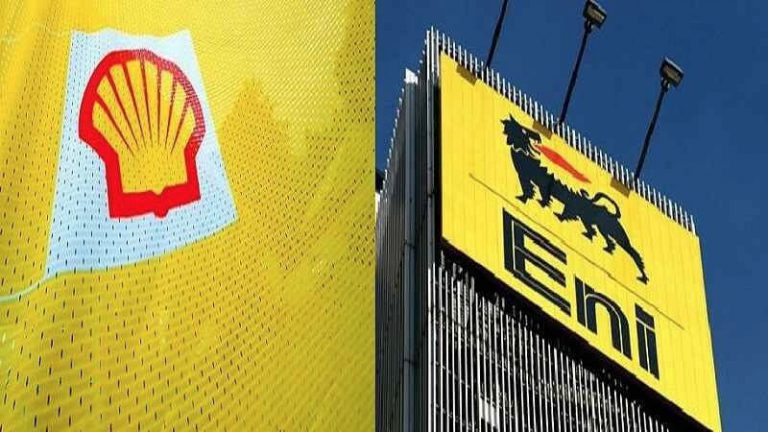Contrary to reports being circulated by a popular fake news online medium (Peoples Gazette), accusing Nigeria’s President, Bola Ahmed Tinubu of withdrawing corruption cases it filed before an Italian court against oil multinational giants, Eni and Shell over the controversial OPL 245 oil deal, it was instead the Italian court that acquitted the Italian oil company Eni and Shell of any wrongdoing in the long running case as far back as March 2021 – more than two years before President Tinubu assumed office.
Nigeria then went on to record a string of losses in courts both in Italy, United Kingdom and the US between 2021 and 2022. The US Department of Justice as well as the US Security Commission also ended their investigations into the OPL 245 deal stating they were unable to find evidence of wrongdoing.
BACKGROUND TO THE OPL 245 MALABU SAGA
OPL 245 is an oil block located in the Niger Delta area of Nigeria. On April 9, 1998, the federal military government awarded OPL 245 to Malabu Oil and Gas Ltd, which was said to be owned mainly by Mohammed Abacha, son of Sani Abacha, and Dan Etete, who was the Petroleum Minister at the time.
Former President Olusegun Obasanjo, on July 2, 2001, revoked Malabu’s licence and assigned the oil block to Shell – without a public bid. Malabu went to court but the ownership was reverted to it in 2006 after the company reached an out-of-court settlement with the federal government under Obasanjo.
Shell fought back and commenced arbitration against Nigeria. A consent judgment was obtained by the parties which former president Goodluck Jonathan implemented when he came to power in 2010, effectively returning the oil block to Malabu. Shell and the Italian oil giant, Eni subsequently agreed to buy the oil block from Malabu for $1.1 billion.
Shell and Eni also paid $210 million as a signature bonus to the federal government to consummate the acquisition of OPL 245 from Malabu.
However, activists launched an international campaign alleging that the OPL 245 deal was fraudulent and that the proceeds were used to bribe government officials.
When former President Muhammadu Buhari came to office in 2015, his administration started a series of litigation against Royal Dutch Shell, Eni/Nigeria Agip Exploration (NAE), Shell Nigeria Ultra Deep (SNUD) Ltd, and Shell Nigeria Exploration Company (SNEPCO) over the allegations.
In May, 2020, a UK court declined jurisdiction in a case filed by Nigeria against Shell/SNUD and Eni asking for compensation in the sum of $1.1 billion.
In Italy, a court on March 17, 2021, acquitted Shell, Eni and all defendants in the case filed by Nigeria of all corruption charges in the $1.1 billion deal.
Also in June 2022, Nigeria lost its suit against JP Morgan Bank where it was making a $1.7 billion claim against the American Bank over the transfers of proceeds from the sale of the oil block to Malabu’s directors. The US Department of Justice had earlier investigated the Malabu transaction and announced in October 2019 that it was closing the case.
In April 2020, the US Securities and Exchange Commission (SEC) also closed its investigation into the deal after it could not prove fraud or corruption.
In November 2022, Nigeria lost for the fifth time on the case when an Italian Appeal Court in Milan, rejected Nigeria’s request for $1.1bn compensation from Shell and Eni, the two energy giants that bought the oil block off Malabu Oil & Gas Ltd in 2011.
It is therefore incorrect to suggest that President Bola Tinubu decided to withdraw a case where Nigeria had prospect of succeeding in its claims.

